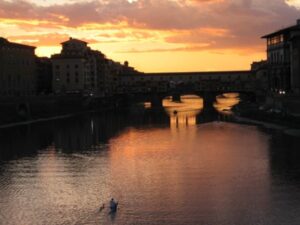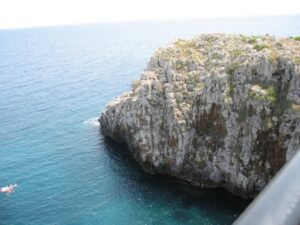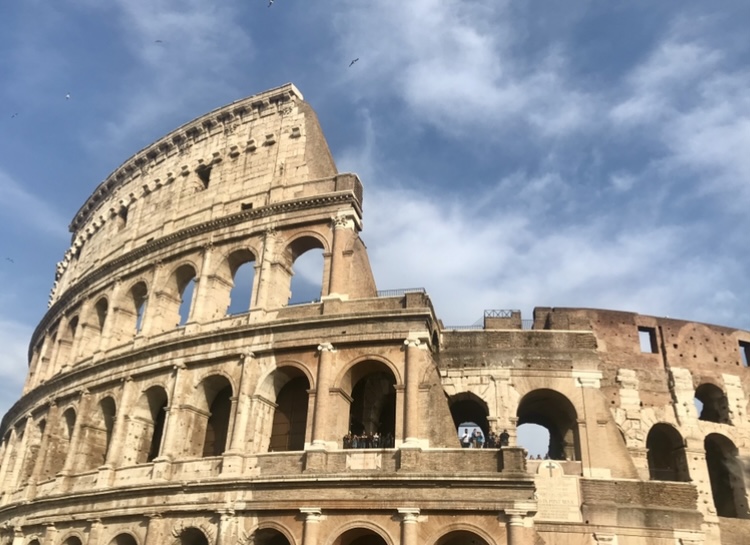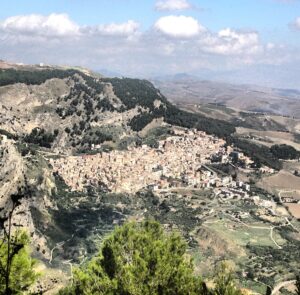Open my heart, and you will see engraved inside of it, ‘Italy.’
Robert Browning
When people ask me about my time in Italy, it’s hard to know which part to share. I lived so many lives in those ten years, and the decade shuffled my priorities and shifted my world perspective. I went in as a stressed-out corporate lawyer, but I left floating like a reed on the water. I didn’t care about proving myself to anyone. I had proven myself to myself.
My first stint lasted two years in Florence, the birthplace of the Renaissance. I worked remotely as a lawyer for my Colorado law firm and traveled around Europe from there, covering more than 20 countries in two years. I freelanced for travel publications, writing hotel and restaurant reviews.
 I always had a group of ex-pat friends in rotation as some left and others arrived. That’s the life of an ex-pat–you are always saying goodbye. But there are a lot of hellos, too. Many ex-pats studied art and painting, and I worked as a volunteer portrait model for a while—which was incredibly dull but a once-in-a-lifetime experience. And I wrote as much as I could. I saw myself as a writer all my life, but after graduating from university with a Journalism degree, I opted for law school. But living abroad inspired me to write again, so I began contributing to The American magazine, a new publication at the time, named after the original Dolce Vita-era version and recreated by its founder’s son, a former Washington Post journalist. I continued to work for the Colorado firm, but I began telling people I was a writer instead of a lawyer, and opportunities popped up for me. An American businessman hired me to ghostwrite a book for him. I started acting as a stringer for Us Weekly and covered celebrity goings-on in Italy.
I always had a group of ex-pat friends in rotation as some left and others arrived. That’s the life of an ex-pat–you are always saying goodbye. But there are a lot of hellos, too. Many ex-pats studied art and painting, and I worked as a volunteer portrait model for a while—which was incredibly dull but a once-in-a-lifetime experience. And I wrote as much as I could. I saw myself as a writer all my life, but after graduating from university with a Journalism degree, I opted for law school. But living abroad inspired me to write again, so I began contributing to The American magazine, a new publication at the time, named after the original Dolce Vita-era version and recreated by its founder’s son, a former Washington Post journalist. I continued to work for the Colorado firm, but I began telling people I was a writer instead of a lawyer, and opportunities popped up for me. An American businessman hired me to ghostwrite a book for him. I started acting as a stringer for Us Weekly and covered celebrity goings-on in Italy. 
After spending several unbelievable ferragostas in Puglia, I decided to move there. I loved the slow pace, the sea culture, and the people; everyone was lovely and friendly. Very few people spoke English, so my Italian vastly improved during my time there. I had made a few friends in the area, and they helped me find an apartment – a charming former cantina with an arched stone ceiling and a modern bathroom built into the rock. An American law client hired me to do marketing abroad, and I was still writing for Italian magazines. Then, some locals asked me to teach them English, and I began working with Italian diplomats, business people, and high school students studying for their English certificates.
My friends and I, and later my fidanzato and I, traveled the boot’s heel and covered every mile of the peninsula’s coast. In the summer, we lounged on boats and dined on pesce crudo and rosato. Puglia’s proper Mediterranean diet is my favorite of all the regions, and I would have lived there forever. But my fidanzato’s company transferred him to Milan, and I went with him.
After a few slow months as a casalinga, I began working for the British school, continuing to teach English as a second language. I was still writing but felt that I needed to put some effort into my law career if I wanted to remain actively practicing. I decided to apply to the University of Turin to study international intellectual property law in conjunction with the World Intellectual Property Organization in Geneva. My class was a mix of students from developed and developing countries, and the worldview it gave me was priceless.
One of my favorite professors, Giulio Cesare Zanetti (Yes, his first and middle name are “Julius Caesar”) offered me an internship in Rome working on IP matters for the International Development of Law Organization. The position came with an apartment looking out on the Vatican. I became great friends with some of my co-workers – a group of intellectual, worldly, beautiful people, and I fell in love with Rome, even though I had never loved the city as a tourist. Living there, I understood that the best part of Rome is hidden from tourists. The real Rome vibe was incredible, the history overwhelming, and I felt like I was behind the scenes with the Italians, watching the tourists who would never know the true Rome. When I saw an opening in the Fendi legal department, I applied, and it set my life on a new path; Rome became my home and the city where I lived the longest in my Italian life.
And then there was Sicily, my most recent Italian love. On a trip back to the USA, I met a man whose father had been born in Sicily to the daughter of an infamous bandit, but he had never been there himself and had no desire to go. He asked me to travel there and help him find his family history. This project stretched me intellectually, emotionally, and physically. I found his family in a small hill town near Corleone and introduced him to his aunts, uncles, and cousins via phone and video. I met a 95-year-old WWII hero who became a dear friend and surrogate grandfather. Finding information about the bandit, Francesco Varsalona, would prove more difficult, but it increasingly became an obsession for me.,
Over the next three years, although I was officially living in America again, I still spent about half of the year in Italy, including summers in Sicily. I walked country fields with locals who showed me where the legendary bandit had hidden during his ten-year reign. I saw churches with secret passageways for the bandit’s escapes and translated more books, articles, and videotaped conversations than I can recall. I tackled Palermo’s Archivio di Stato (National Archives) – although Italian journalists discouraged me and said it was impossible to navigate even for them.
Amid 100-year-old, yellowed papers wrapped in cardboard and tied with twine, I found the mother lode of historical information on the bandit, and I knew I had to write my own version of his story–The Search for Varsalona.




